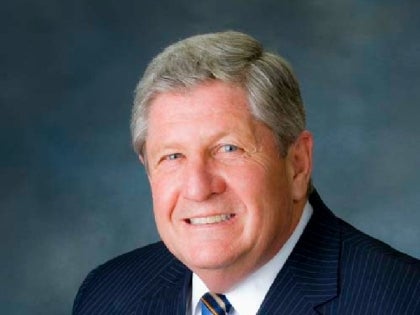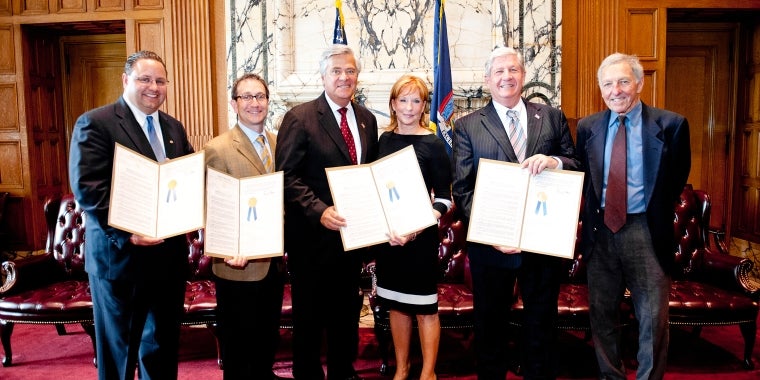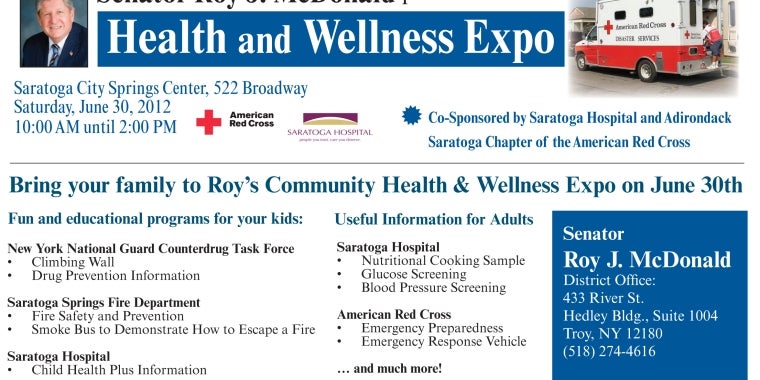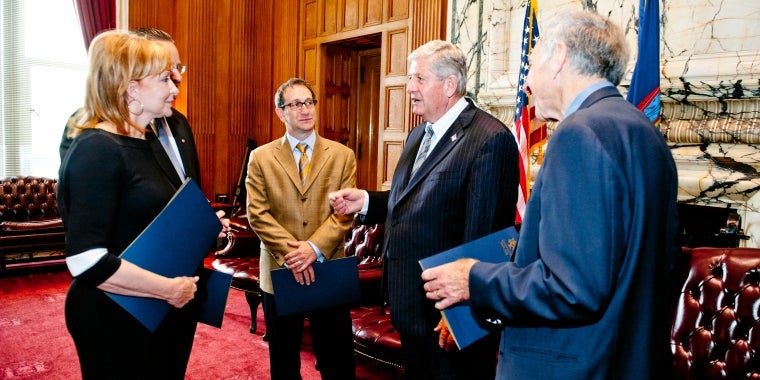
McDonald & Zeldin to Co-Host Public Hearing on Post Traumatic Stress Disorder in Combat Veterans
February 27, 2012
Albany – Senators Roy McDonald (R-Saratoga) and Lee Zeldin (R-Shirley) announced today that they will co-host a public hearing on Post Traumatic Stress Disorder (PTSD) in combat Veterans. The purpose of the public hearing, to be held in Albany on February 29th in the Hamilton Hearing Room B from 10 A.M. to 1 P.M., is to gain information on PTSD in order to improve early diagnoses, increase access to treatment, and provide crisis and support services.
Both McDonald and Zeldin are combat Veterans. McDonald served in the U.S. Army’s First Cavalry Division as a Forward Observer in the Vietnam War.
In the summer of 2006, while assigned to the Army’s elite 82nd Airborne Division, Zeldin deployed to Iraq with an infantry battalion of fellow paratroopers in support of Operation Iraqi Freedom.
“We need to learn more about this disorder so we can provide access to the necessary treatment and services that can prevent an individual from emotional pain and suffering,” said McDonald. “The men and women of our armed services risk their lives to protect our freedoms, we need to make certain we give them every opportunity to be healthy and successful when they return home.”
“Post Traumatic Stress Disorder is affecting countless veterans returning home from the battlefield," said Senator Lee Zeldin. "I am hopeful that this hearing, and others like it, will provide us with the right tools and knowledge to help our servicemembers struggling with this disorder get the access to the treatment and support they deserve. Our veterans have sacrificed so much for this country and we must do everything we can to ensure that, when they come home, they're able to enjoy the freedoms they fought so hard to protect.”
It is widely recognized that returning from combat and assimilating into local communities can be a very emotional time for Veterans. When symptoms of posttraumatic stress emerge, including difficulty falling or staying asleep, having nightmares, feeling angry and having a sense of hopelessness, Veterans may be hesitant to seek help. When PTSD is left untreated not only is the individual Veteran affected, but his or her family, friends and community can be impacted as well.
###
Share this Article or Press Release
Newsroom
Go to NewsroomCommemorating Saratoga Jazz Festival
June 18, 2012


